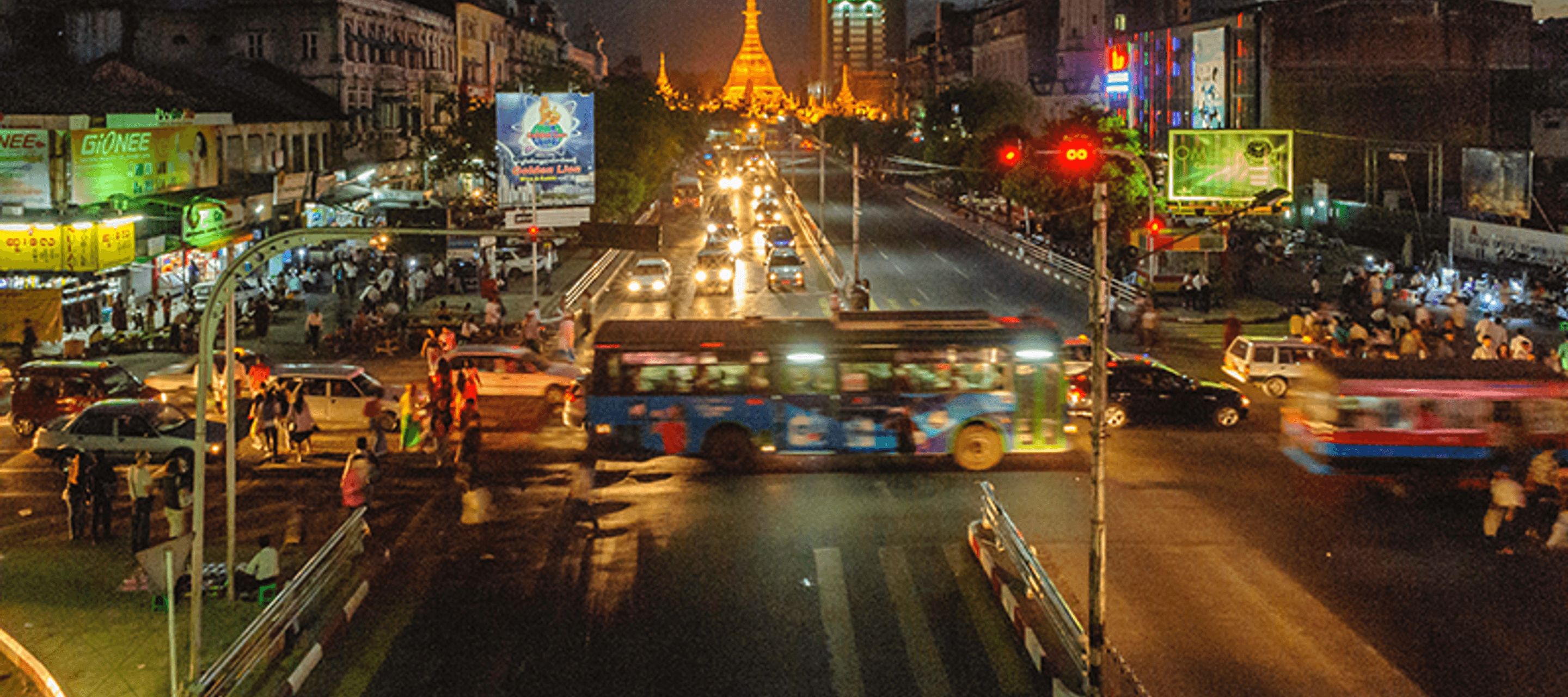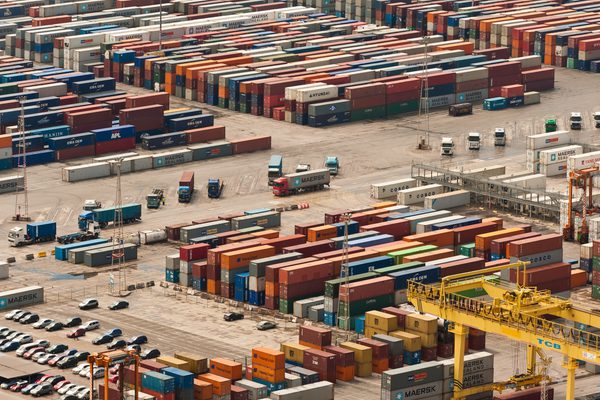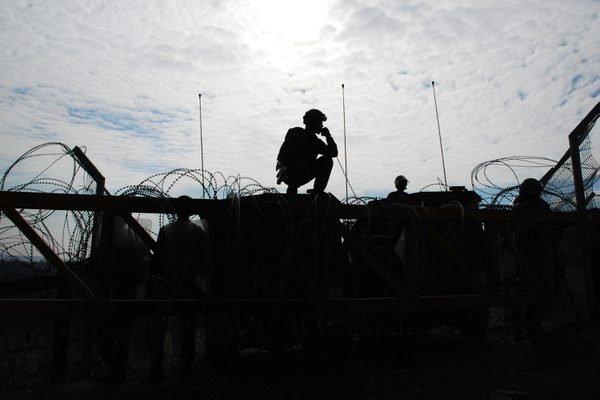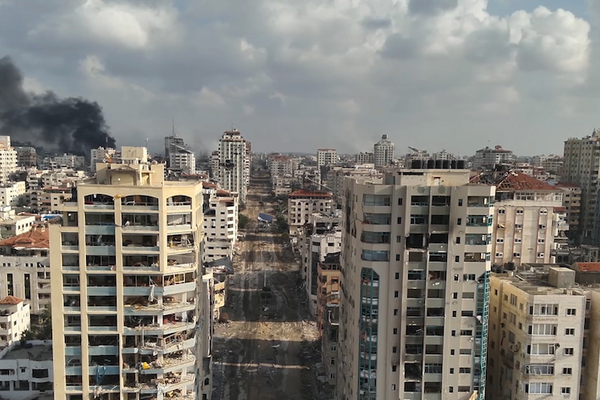Can Companies Continue to Operate Responsibly in Myanmar?
1 June 2021

Myanmar is at a crossroads. The military leaders who took power by force earlier this year lack local and international legitimacy and have unleashed a reign of terror on their own people. More than 700 civilians protesting peacefully have been killed; besides politicians and activists, journalists and writers have been arrested. Frustrated by the military’s refusal to respond to nationwide peaceful protests, elements of the opposition have turned to violent means, attacking military and government targets, and, sadly, in some instances, civilian locations such as supermarkets, bank branches, petrol pumps, car parks, have been attacked. Many people have gone into hiding, threatened with ‘505a’ orders for using Facebook to spread news of protests and encouraging participation on.
Given our own work in Myanmar over more than a decade, culminating in the establishment of the Myanmar Centre for Responsible Business (MCRB) in 2013, we are deeply concerned by ongoing developments in the country and the safety of our colleagues. We’re convinced that all companies continuing to operate in Myanmar must now take even more rigorous actions to ensure they do everything in their power to abide by international standards and avoid complicity in human rights violations being committed by security forces.
In facing the current context, we’ve been reflecting on the experiences of the last decade and what lessons they may offer today. In early 2012, we visited Myanmar’s largest commercial city Yangon, the capital Naypyitaw, and a Special Economic Zone being built south of Yangon. We spoke with government officials, opposition politicians, local businesses, multinational firms, trading companies, local civil society, journalists, and diplomats, to understand the reality on the ground as the country was taking initial steps towards a transition to democratic governance. Our strong impression at the time was that Myanmar seemed at the cusp of real change: its energetic, young population was keen to work, its entrepreneurs were looking for opportunities and investment, its government suggested it was serious about reforms, its opposition was willing to compromise for the greater common good, and the international community felt progress was possible. Our aim then was to understand what useful role responsible businesses could play, in upholding international norms and standards, so that new investment and trading relationships would promote - and not undermine - respect for human rights in the country.
Our report at the time acknowledged the potential positive role of investment, but also pointed out the risks ahead, including conflicts over land and rampant exploitation of natural resources, the legacy of past human rights abuses, prevalence of forced labour, risks of collusion in working with military-linked businesses, persistent discrimination against ethnic minorities, and widespread corruption.
Our message then was that if investors were to do business in Myanmar, they had to get it right, by following standards such as the UN Guiding Principles on Business and Human Rights, and other applicable standards. IHRB organised a multi-stakeholder meeting of businesses, governments, and experts at Wilton Park, whose conclusions highlighted the need for new approaches to foster responsible business in Myanmar, including the potential for new organisations to offer guidance and support.
Since the Myanmar Centre for Responsible Business (MCRB) was formed in 2013 by IHRB and the Danish Institute for Human Rights, with initial support from a number of donor governments, it has been pivotal in steering companies operating in Myanmar towards responsible conduct. It has published detailed reports on crucial sectors such as oil and gas, information and communication technology, tourism, and mining. It has also produced the Pwint Thit Sa reports to encourage better disclosure and corporate governance. It has been a sustained advocate for responsible business conduct that conforms to the highest standards.
Not every development over the past ten years has been a forward step for reform, democracy and human rights. Not all of the decisions taken by the inexperienced National League of Democracy (NLD) government, democratically elected in 2015, protected human rights. The civilian government did not control all the levers of power, as the military continued to control defence, national security, and other key portfolios. They used this to pursue violence against the Muslim Rohingya community in 2017 and continue to abuse ethnic minorities in conflict regions. This took the sheen off the civilian government, with human rights groups accusing it of being complicit with the military’s conduct. This was cemented by the 2018 report of the independent fact-finding mission to the UN, criticizing the perpetration of human rights violations against the Rohingya population, blaming both the military and civilian government – and was reinforced by the UN Special Rapporteur on the situation for human rights in Myanmar in January 2020. These reports highlighted the risks for businesses with links to military companies, precipitating an intensification of due diligence by foreign investors.
The military’s recent actions have reinforced this message, which is now reaching Asian investors such as Japan’s Kirin, South Korea’s Posco, and India’s Adani, including through enquiries from Western investment funds. Given the current situation, all businesses need to avoid and end commercial relationships – direct or indirect – with the military and its economic interests. Western sanctions on military conglomerates are reinforcing this.
But where should we go from here? What should businesses committed to responsible conduct understand about their roles and responsibilities?
The [military's] instincts are to return to the failed, controlling strategies of the past, banning imports of consumer goods from Thailand, reopening inefficient state-owned factories, and seeking to control all information by ripping out satellite dishes.
First, it is critical to recognise that military conglomerates are not synonymous with the Myanmar economy, something which media reporting often fails to convey. The private sector, which has powered the growth Myanmar has experienced since 2011, is genuinely private, and a mixture of Myanmar entrepreneurs and foreign investments. While some of the protesters who thronged the streets in Myanmar’s 2021 Spring Revolution were government workers, most were free of government control. They owned IT start-ups, worked in European beer companies and marketed Japanese medical equipment to local private hospitals. They were bank workers, coffee traders, worked in mobile phone shops, and ran restaurants and eco-camps to cater to these people, Myanmar’s Gen-Z. They were running small businesses that were learning about and adapting to international standards for chicken production, or sales of spices to Europe, or outerwear to the USA. Above all, they were celebrating their freedoms. Unlike their parents and grandparents, they were not dependent on state salaries or military controlled propaganda.
When it took over on 1 February of this year, the military discovered that the successful liberalisation of the economy, including telecommunications and banking, had contributed to the flowering of freedom that the people were marching to defend. It was a complexity that the military still struggles to understand. Their instincts are to return to the failed, controlling strategies of the past, banning imports of consumer goods from Thailand, reopening inefficient state-owned factories, and seeking to control all information by ripping out satellite dishes.
Second, we should acknowledge that as the military tries to cement control, the private sector faces increasing challenges, many of which make it far more complicated for companies to adhere to their responsibility to respect human rights. For example, telecoms providers grapple with military orders for internet shutdowns and website blockages, which have consequences affecting business and daily life. Banks, which closed their doors in February, firstly because the military shut off the internet, then to respect their employees right to demonstrate, and additionally to protect employee and customer safety, have been forced by the regime to reopen on pain of losing their licences. The military’s decision to turn off mobile internet destroyed the successful take-up of mobile payments and so people have had to queue up for cash withdrawals. This has contributed to a crisis of confidence in the banks. This is exacerbated by the failure of the Central Bank to supply private banks with currency notes. These queues annoy the regime – who want to present a ‘business as usual’ face to visiting foreign media – and so the military sends soldiers to control them. Meanwhile the military regime tells the Central Bank to tell private banks to provide them with data on every single withdrawal since 1 February – a fundamental breach of the right to privacy.
These are just some of the business and human rights challenges companies in Myanmar face today.
[A]s the military tries to cement control, the private sector faces increasing challenges, many of which make it far more complicated for companies to adhere to their responsibility to respect human rights.
What steps can business take?
Businesses in Myanmar should know by now that they should not have business relationships with the military or companies linked with the military. In particular business leaders must take all possible steps to avoid exposure to complicity in any breaches of international criminal and humanitarian law, as Puma Energy has done in suspending provision of jet fuel to an airport where it could be used by the military.
One question with no easy answers is whether meeting paying legal tax obligations to an illegitimate and authoritarian government makes a business complicit in their human rights abuses. Many civil society organisations, in Myanmar and abroad, have been calling on companies to withhold payments to the military regime. Responding to stakeholder pressure, Total and Chevron have suspended the disbursement of profits from their pipeline operations to shareholders, which includes the state-owned oil and gas enterprise.
But legal tax revenues also contribute to preventing a failed state. They are needed for functioning public services, including health and the need to combat COVID. Starved of revenue during the period between1988 and 2002 (when gas revenues started to arrive), the previous military regime found other forms of revenue raising and informal taxation through approaches such as forced labour, unsustainable natural resources exploitation, currency printing, and cronyism.
This is why businesses should take a direct interest in public finance, transparency, and good governance. Those who continue to operate in Myanmar should contribute to greater transparency by publishing what they pay, but should also work with others to advocate for taxes to be spent on welfare not warfare.
Those who continue to operate in Myanmar should contribute to greater transparency by publishing what they pay, but should also work with others to advocate for taxes to be spent on welfare not warfare.
It is not easy for companies to stand up to the generals alone; collective action is critical. Companies can and should act in concert. There may also be a role for quiet business advocacy - as examples from South Africa, Afghanistan, and the Sudan have shown in the past - although currently the opposition movement is keen that companies should not meet with and confer legitimacy on the junta.
And this collective action applies to all businesses that operate in Myanmar – western and Asian, large and small, international and local. Businesses and investors in Myanmar must do all that they can to hold the line and act collectively and adhere to UN Guiding Principles, other rules of responsible conduct, and international standards, especially since the military regime will push in the opposite direction.
The road ahead won’t be easy. Companies that continue to operate in Myanmar will have to undertake ongoing and rigorous examination of the impacts of their actions on Myanmar’s people. At this difficult time, while we are concerned about the well-being of our MCRB colleagues, we applaud their amazing work. For close to a decade they have persistently and quietly pointed out the path companies should follow in Myanmar, so that they can act responsibly. They are courageous individuals committed deeply to the ideal of the positive role business and economic growth can play in improving human rights. It is important that they are able to continue their work.
Myanmar’s hard-working, enterprising, tireless, dedicated, peace-loving people desperate to emerge out of poverty, deserve no less.
It is not easy for companies to stand up to the generals alone; collective action is critical. Companies can and should act in concert.





